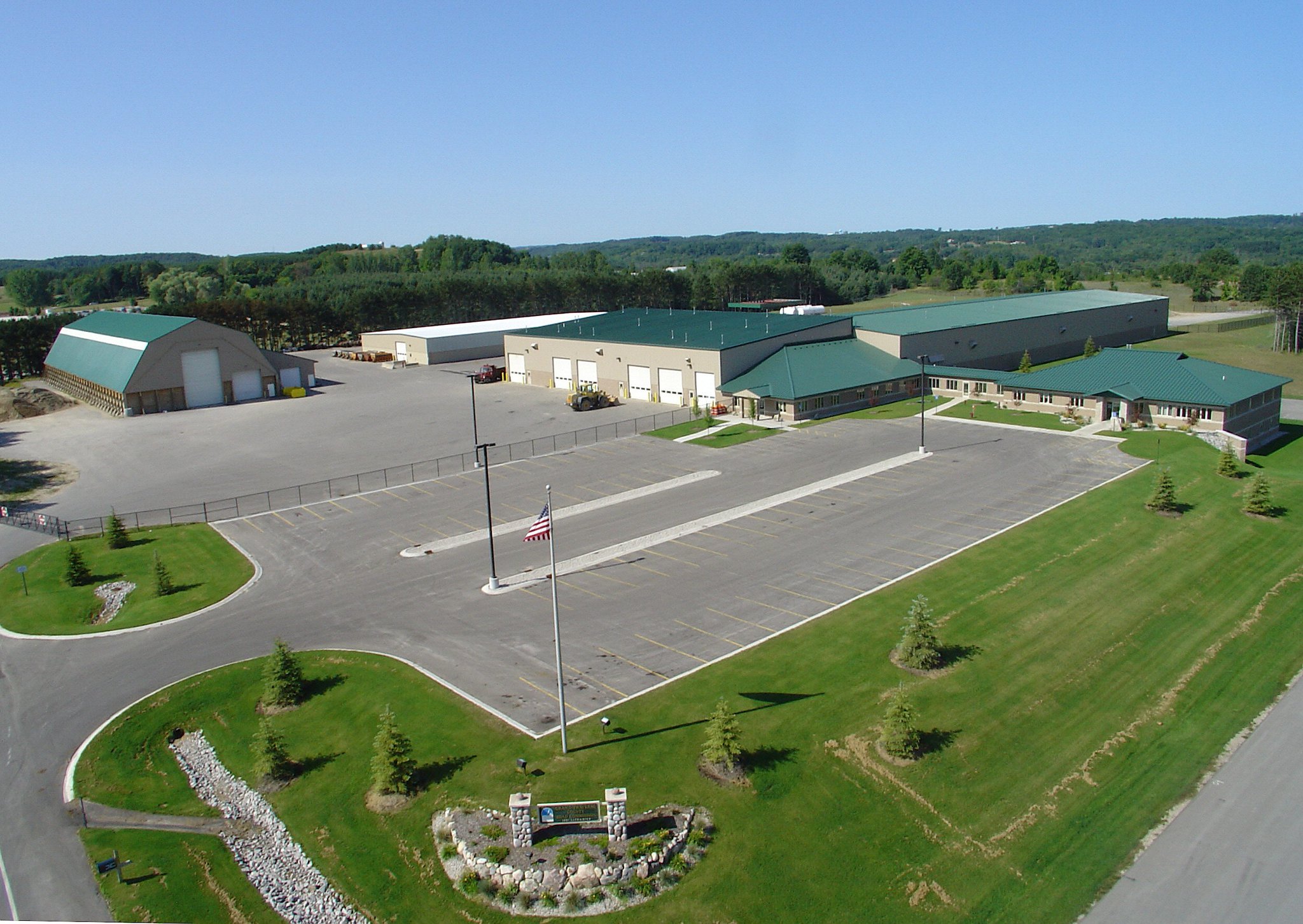
Road Commission Receives Raises Amid Questions About Project Priorities, Community Engagement
By Beth Milligan | July 21, 2022
Grand Traverse County commissioners voted 4-2 Wednesday to approve significant salary increases for county road commissioners, hikes that amounted to a 40-45 percent raise for the five members of the county-appointed board. The vote was accompanied by extensive discussion about Grand Traverse County Road Commission (GTCRC) policies and projects – including an update that Keystone Road is expected to open to two-way traffic nearly seven weeks ahead of schedule on August 8 – as well as scrutiny over GTCRC’s community engagement and process for prioritizing road repairs.
After recently completing a salary study, GTCRC requested to increase the board chair’s salary from $6,500 to $9,000, the vice chair’s salary from $6,000 to $8,500, and other board members’ salaries from $5,500 to $8,000. County commissioners took up the requested GTCRC raises Wednesday after the proposal was pulled from the consent calendar in June. Commissioners tabled the agenda item until July so that GTCRC staff and commissioners could come in and answer questions about the proposal and overall operations.
While county commissioners agreed in June that GTCRC “performs a very important role,” in the words of Commissioner Betsy Coffia, they expressed concerns about complaints shared by the public and local township supervisors about GTCRC’s lack of responsiveness and collaboration in addressing road projects and repairs. Multiple commissioners said constituents told them they had called GTCRC with road concerns, only to be told to talk to their local township representatives, and didn’t have any recourse when they opposed a GTCRC decision or ran into challenges trying to work with staff or road commissioners.
Coffia pointed out that GTCRC members are appointed, not elected, to six-year terms and control their own budget, meaning they often operate autonomously without voter oversight. County commissioners serve as the primary accountability mechanism for GTCRC through whom they appoint to or remove from the board, as well as through votes on things like salary increases. Coffia said she thought any taxpayer-funded salary hikes should be proportional to the satisfaction level of residents and that she was worried about a “steady drumbeat of constituent concerns” regarding GTCRC.
GTCRC Manager Brad Kluczynski attempted to address those concerns in a presentation Wednesday, touching on topics like the process for prioritizing road repairs, tree cutting and brush clearing, and community engagement. Kluczynski reminded commissioners that GTCRC receives approximately $13 million annually from the state through vehicle registration and fuel tax revenues, and another $5 million through a local millage that is spent exclusively on road maintenance. The state requires road commissions to designate roads as either “primary” or “local” roads; only one-third of the county’s total road network can be designated as primary. Road commissions must have at least 85 percent of their primary roads rated as good or fair condition before they can focus on resurfacing or reconstructing local roads, Kluczynski explained, which can often drive complaints from residents who don’t understand why local roads aren’t a higher priority for repairs.
The good news, according to Kluczynski, is that 90 percent of GTCRC’s approximately 290 miles of primary roads will be in good or fair condition at the end of 2022, allowing staff to switch gears and begin focusing on local roads. GTCRC has historically requested a 75 percent match from townships for improvement projects on local roads, which can be paid for through the township's general fund or a special assessment district (SAD). Both of those funding options can spur complaints when expensive projects come up and community members want to see GTCRC pick up more of the tab, with road commissioners pointing to Bluff Road on Old Mission Peninsula as an example of the stalemate that can ensue.
Kluczynski said with primary roads in good shape, GTCRC has a new plan in which it will take on 120 miles of local roads for repairs with no required township match, covering costs for both reconstruction/resurfacing and preventative maintenance thereafter. He cited Barney Road as an example of a road – designated local but considered primary by residents because of its role as an important connector – that will be repaired in the coming years. Even with GTCRC taking on those 120 miles, Kluczynski said approximately 600 miles of local roads will remain that can only be reconstructed with local matches. However, he said GTCRC still provides maintenance/upkeep, with staff fielding approximately 150 requests for service monthly. In response to commission questions about how GTCRC handles complaints or service requests, Kluczynski said the department has a current response time of under 10 days to deploy staff in the field and will roll out a citizen reporting tool next month that will allow residents to report issues – such as potholes, washouts, or downed trees – and have those complaints routed directly to the staff responsible for them.
Kluczynski and road commissioners argued Wednesday that criticism against GTCRC often originates from misunderstandings about road commission funding, operations, or state or federal requirements. For instance, Kluczynski said GTCRC fields numerous complaints about speeding on various roads but has no control over speed limits (those are set by the Michigan State Police). Residents are often critical of tree and brush clearing projects, but trees cast shadows over asphalt – preventing its drying out and allowing water to accumulate – that can take seven or eight years off the life of a road, in addition to GTCRC facing liability when drivers crash into trees too close to the road, Kluczynski said. He also pointed to several positive recent trends at the department, including high staff retention, Grand Traverse County being ranked eighth out of 83 counties in Michigan for primary road conditions, and projects finishing ahead of schedule. That includes the Keystone Road project, with Team Elmer’s weeks ahead of schedule on finishing two roundabouts at Cass and River roads and targeting an early August 8 open date to two-way traffic instead of late September.
Following Kluczynski's presentation, county commissioners voted 4-2 to approve the GTCRC board raises, with Chair Rob Hentschel and Commissioners Penny Morris, Brad Jewett, and Ron Clous in support and Coffia and Commissioner Bryce Hundley opposed. Commissioner Darryl Nelson was absent. Coffia said that while she could support a cost-of-living increase, a 40-45 percent salary hike was too high without seeing “improvement in the handling of taxpayer concerns.” Other commissioners defended the salary hike, however, with Jewett stating that it was easy to skew percentages when wages were already at relatively low levels. Hentschel pointed out the increases put Grand Traverse County in the middle range of salary ranges when compared to other road commissions.
“They’re not the highest paid, they’re not the lowest paid,” he said, adding the increases seemed appropriate given inflation and wage hikes recently extended to GTCRC staff. He added that accountability exists for the GTCRC board through both the courts – with residents able to sue to challenge board decisions – and through county commissioners. Pointing to the recent removal of two Northern Lakes Community Mental Health Authority board members, Hentschel said it’s always an option for commissioners to remove GTCRC board members going forward if commissioners believe they’re not “doing their job.”
Photo credit: Grand Traverse County Road Commission
Comment






